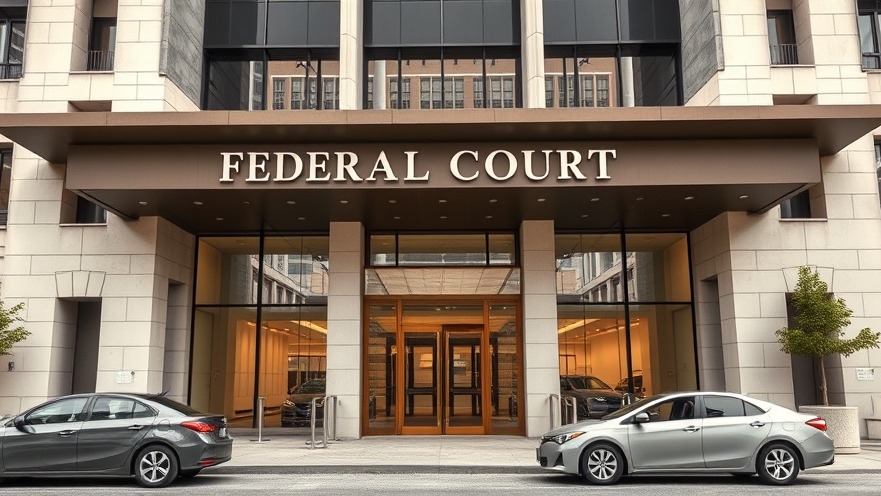
The Grand Jury's Rebellion: A Sign of Discontent?
As tensions rise in the U.S. political landscape, the recent wave of grand jury rejections in Washington D.C. serves as a remarkable display of dissent against harsh prosecutorial actions. In the wake of President Trump's aggressive immigration policies and public show of force, ordinary citizens serving as grand jurors have made headlines by refusing to indict defendants involved in these politically charged cases, demonstrating a potential shift in public sentiment.
A Reflection of Community Values
The unusual stance taken by the grand jurors could be interpreted as a grassroots movement within the system. Grand jurors, typically a reflection of the community, appear to symbolize a collective voice against what they view as overreaching governmental authority. This resistance is noteworthy, especially considering the conventional power dynamic where prosecutors hold significant sway in securing indictments. Barbara L. McQuade, a former U.S. attorney, notes that this level of rejection is rare, perhaps highlighting a growing awareness of prosecutorial overreach among everyday citizens.
Analyzing the Political Climate
The recent actions of the grand jurors speak volumes about the current political environment in America. With a backdrop of aggressive policies and a heavily militarized presence in Washington, many citizens are likely grappling with fears over civil liberties and the integrity of the judicial process. The overturned indictments suggest a populace unwilling to comply with prosecutions perceived as punitive rather than just.
What This Means for Future Prosecutions
As the nation moves closer to the 2024 elections, the implications of these grand jury decisions could resonate far beyond Washington D.C. The apparent citizen revolt may encourage future jurors to reconsider their roles and the implications of their decisions within a politically charged context. This act of defiance may usher in a new era where jurors feel empowered to challenge prosecutorial decisions, thereby shifting the legal landscape.
Understanding the Broader Implications
This situation serves as a critical reminder of the delicate balance between law enforcement and civil rights, especially in light of current events in America. As the high-profile discussions around immigration and military presence continue to unfold, the resolve shown by the grand jurors could influence public perception considerably. Citizens concerned about their rights and the implications of government overreach may see this as a rallying point, further reinforcing the need for judicial accountability.
Conclusion: A Call for Civic Engagement
The actions of the grand jurors in Washington D.C. illustrate the importance of civic participation and awareness within the community. As citizens navigate the complexities of present-day politics, engaging in discussions surrounding law enforcement, civil liberties, and government authority is more vital than ever. The refusal to indict may serve as an inspiration, urging citizens to take a stand on issues that matter. Embracing one’s civic duty is critical as we approach the coming electoral cycles, where individuals can express their voices through voting and activism.
 Add Element
Add Element  Add Row
Add Row 



Write A Comment